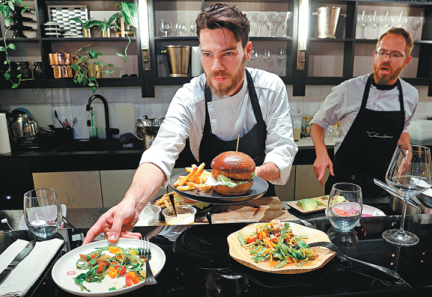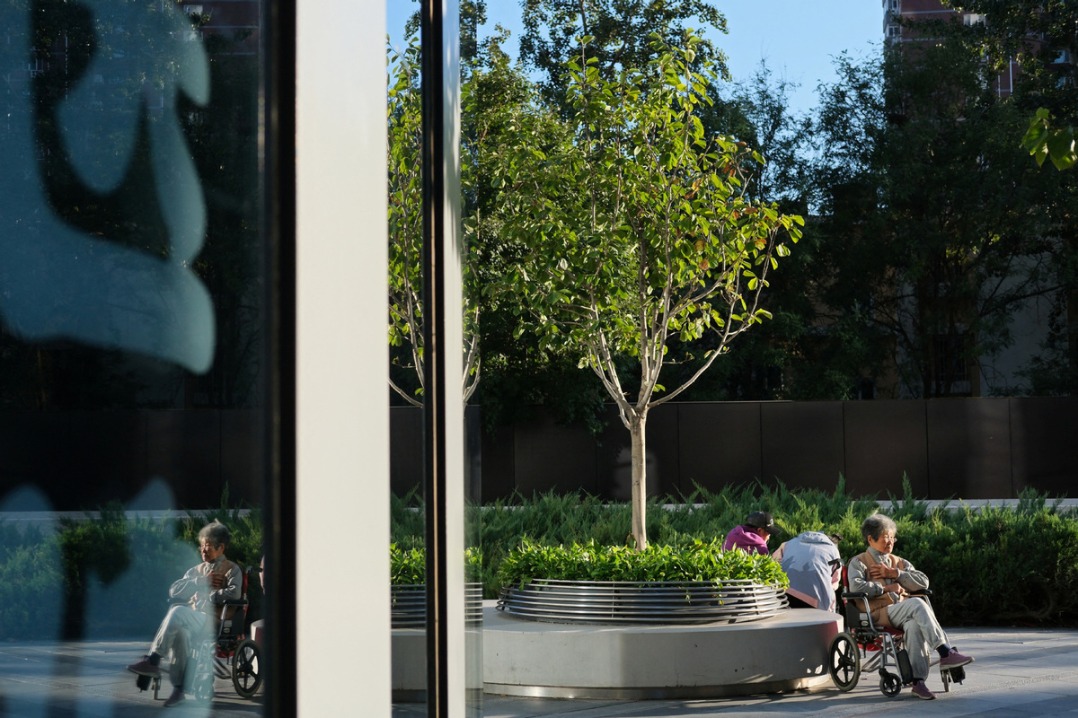Israelis taste the future with lab-grown chicken


NESS ZIONA, Israel-It looks like chicken and tastes like chicken. But diners in Israel are tucking into laboratory-grown "meat" that scientists claim is an environmentally friendly way to feed the world's growing population.
In a small restaurant in a nondescript building in a science park in the central Israeli town of Ness Ziona, diners munched burgers and minced meat rice rolls made with "cultured chicken"-meat grown in the adjacent SuperMeat production site.
"It was delicious, the flavor was great," said Gilly Kanfi, a self-described "meat-eater" from Tel Aviv, who had signed up for the meal months in advance. "If I didn't know, I would have thought it was a regular chicken burger."
The Chicken, as the eatery is called, is a testing ground of sorts for SuperMeat, hosting periodical test meals to generate customer feedback while waiting for regulatory approval.
The restaurant's dark and elegant interior is framed by large windows looking onto a bright-lit laboratory, where technicians monitor large stainless-steel fermentation vats.
"This is the first time in the world people can actually have a taste of a cultivated meat product, while observing the production and the manufacturing process in front of their eyes," said Ido Savir, SuperMeat's chief executive.
At least, the laboratory has made redundant the age-old question of whether the chicken or the egg came first.
The process involves cultivating cells taken from a fertilized chicken egg.
Cell cultures are fed a plant-based liquid including proteins, fats, sugars, minerals and vitamins.
With all the feed going directly into production, it grows rapidly, with the mass doubling in a matter of hours, the company says.
Savir, a vegan with a background in computer science, sees himself as being at the "forefront of a food revolution" trying to help supply food while limiting the impact on the planet.
Finding ways
Developers said they are working to provide more ethical and sustainable ways to create cruelty- and slaughter-free meat, with the product grown without using genetic engineering or antibiotics.
The company is currently able to produce "hundreds of kilograms" each week, Savir said.
He hopes to earn regulatory approval from the US Food and Drug Administration, and would then increase production to a "commercial" scale.
"This way we'll be able to reduce the amount of land, water use and so many other resources, and keep the product very healthy and clean," he said, noting the high prevalence of diseases among chickens produced in factory-style production.
Global meat production is projected to rise 15 percent by 2027, the UN Food and Agriculture Organization said.
SuperMeat is not the first to develop the technology. A Singapore restaurant made history in December when it became the first to sell lab-grown chicken meat.
The Israeli firm has developed a versatile product, blending muscle, fat and connective tissue cells to create different cuts.
Agencies via Xinhua

































